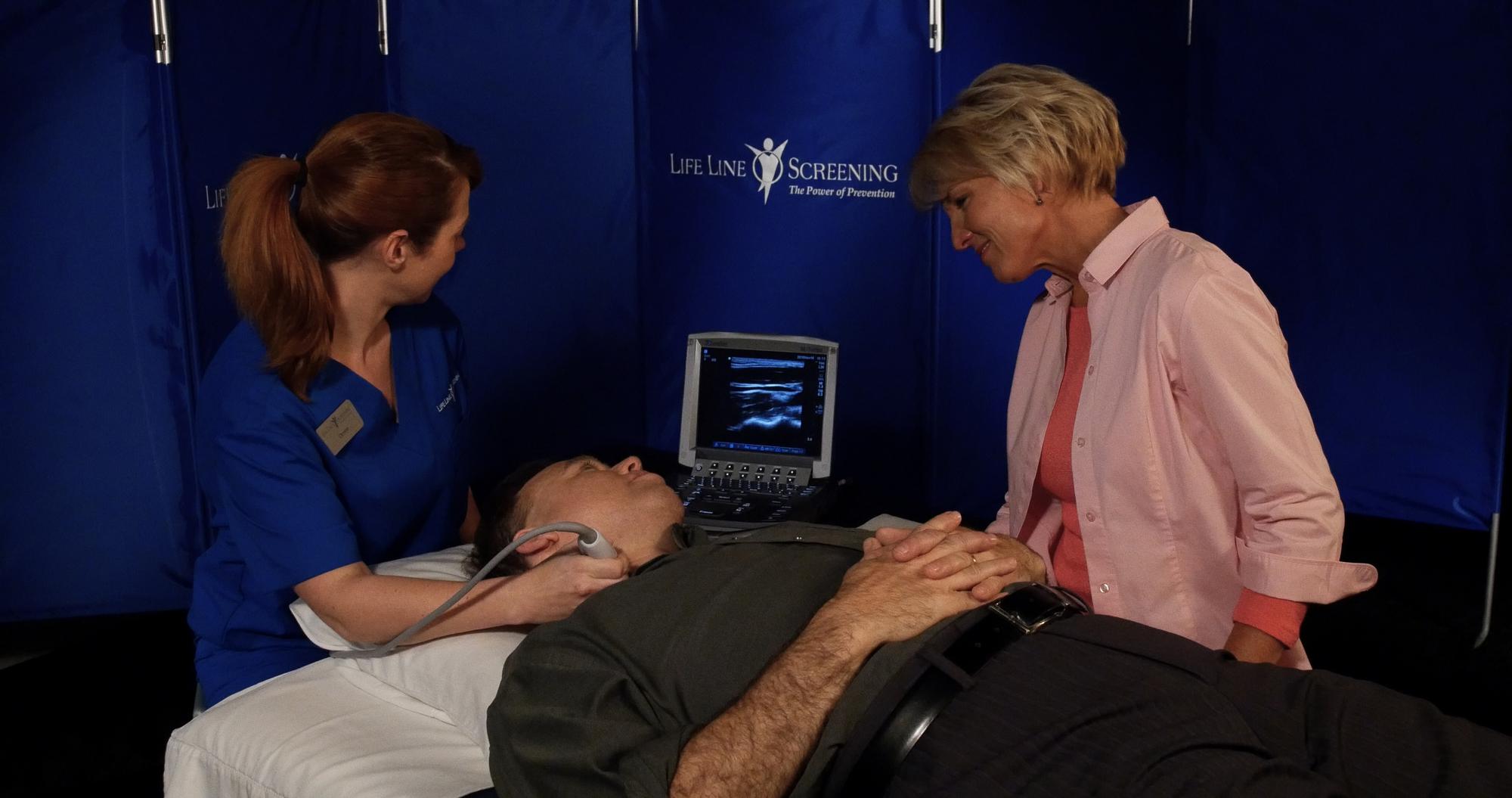Home » Health Education » Carotid Artery » Studies Show Carotid Artery Screening Helps Predict Strokes and Heart Attacks Early

Studies Show Carotid Artery Screening Helps Predict Strokes and Heart Attacks Early
Life Line Screening
It’s not unusual for cardiovascular disease to show few or no symptoms. In fact, more than half of men and women who die from cardiovascular disease show no signs of a heart or vascular problem. Early detection through non-invasive, inexpensive and reliable screening methods, however, has been shown to save lives among individuals with key risk factors.
Studies have found that imaging can be used to help determine the extent of a person’s carotid artery disease risk among selected patients. According to a new study published online in the journal Radiology, noninvasive imaging technology showing carotid artery plaque can accurately predict future cardiovascular events like strokes and heart attacks in people without a history of cardiovascular disease. This means that imaging technology like ultrasound can accurately predict and prevent asymptomatic conditions like plaque build-up in the carotid arteries, which can help prevent a life-threatening stroke or heart attack from happening.
“”We studied asymptomatic individuals with a low risk of cardiovascular events at baseline and used noninvasive imaging to predict the risk of an event downstream,”” said David A. Bluemke, M.D, Ph.D., from the National Institutes of Health Clinical Center, in a Science Daily article. This is the first population-based prospective study to determine if vulnerable plaque features by MRI add to the risk of a cardiovascular event beyond the traditional risk factors.””
The key to proper use of carotid artery screening methods is understanding a person’s risk factors. Studies have shown that it is best for those who are already at increased risk of plaque build-up or cardiovascular disease in general.
“”As risk factor prediction gets better, we’ll be able to screen more intelligently and use more intensive treatments in those individuals who face a higher risk of cardiovascular events, Dr. Bluemke said in the article above.
In conjunction with these findings, other studies have shown a strong connection between the presence of plaque in the carotid artery and traditional cardiovascular disease risk factors. Such risk factors include increased age, family history, tobacco use, high blood pressure and others. In addition, several studies have shown a link between carotid artery plaque and the presence of carotid artery disease. One study found that among individuals with occlusive carotid artery disease, they were seven times more likely to have a positive exercise electrocardiogram stress test compared to those with plaque-free carotid arteries.
CAROTID ARTERY DISEASE SCREENING
Life Line Screening offers a simple, painless and non-invasive carotid artery disease screening for individuals at risk. The screening uses cutting-edge Doppler color flow ultrasound technology to create images of the carotid arteries while also measuring blood flow through them.
The carotid artery disease screening is best for those over age 50, or those over age 40 with risk factors that include tobacco usage, high blood pressure, family history, diabetes or high cholesterol. There are often no warning signs of carotid artery disease and plaque build-up, making screening all the more important for individuals at risk. Proper screening can lead to the prevention of life-threatening conditions that happen as a result of plaque build-up.
Take your health into your own hands. For more information about the carotid artery disease screening offered by Life Line Screening, click here.
Health Education Articles
Explore our library to stay on top of the latest trends, research, and helpful guidance based on your health needs.
Healthy Living
Stay informed on changes to everyday living that have a big impact on long-term health.
Diet & Nutrition
Get healthy recipes and advice proven to reduce risk of serious illnesses.
Disease Information
Discover the latest research about health issues often addressed by our services.